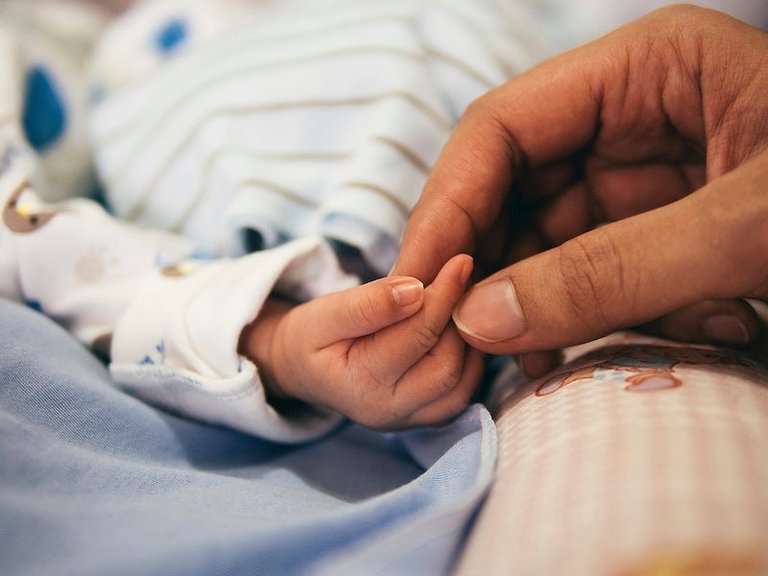The Existence of Postpartum Disorder and Postpartum Anger in a New Mother.
I am not really a fan of home videos, but once in a while when my sisters who absolutely love to watch them are around, I catch a glimpse of one or two scenes. One certain one, I believe was well scripted and well acted that it caught my attention so well, and I started to study the topic.
According to the movie, of course, trying to describe a normal African home. A woman is excited to carry her own child and have her baby. In the presence of money or not, an African woman just wants her own baby. But then, some women after having the child begin to grow some form of resentment towards the baby, and my question is; When did the switch happen?
I mean, how do we go from a mother who is really happy and excited to have her baby, to a woman who totally dislikes the baby and wants nothing to do with the child? My sister, who has more knowledge on the topic answered a few questions of mine and it got even more interesting with my own findings.
Apparently, every mother always has this anxious, sad, tired, frustrated, and overwhelmed feeling after delivery, it is a feeling described as BABY BLUES. Things are however supposed to get better after a few weeks, but unfortunately, this is not the case for all women, and for the women whose feelings are sustained even after 2 weeks, is when we have a case of POSTPARTUM DEPRESSION and this depression sure makes it difficult for a new Mum to care for her child.
From the movie I watched, the woman could not handle all the pressure being thrown at her and the fact that family members didn't understand her, made matters even worse. At the end of the day, she eventually committed suicide.
Let's start with looking at, POSTPARTUM RAGE. This mood disruption creates a high level of aggression, serious anger, and agitation weeks after birth. This postpartum anger could collide with other conditions like postpartum depression and anxiety.
Postpartum rage is when there is an outburst of anger that is difficult to control, although often overlooked or simply considered as one of the symptoms of postpartum depression, it is a serious mental health condition on its own. Postpartum rage comes with symptoms like;
- Having the urge to scream at other people.
- Punching objects.
- Dwelling more on a situation than usual.
- Yelling, screaming, more than usual.
- Feeling incapable of coping with emotions.
It is what we would normally see and say, why is that woman's blood always hot or always boiling? There are several reasons why postpartum rage could happen;
- A change in the pattern of sleep.
- Change in lifestyle or relationships.
- New emotions in relation to demands from the baby.
- Family history of anxiety or depression.
Certain triggers could also increase the chances of having Postpartum anger after birth;
- Having a child with a disability.
- Having a baby who refuses to sleep or having breastfeeding struggles.
- A mother with a history of depression or mental illness.
- Experiencing the death of a close relative, divorce, or a serious problem at that time.
Postpartum rage can however be managed and treated with several options made available by medical experts, through medications, support groups, lifestyle changes, and the like.
POSTPARTUM DEPRESSION, is more common, and in the real sense of things postpartum anger is classified under its description also. The symptoms felt are different from one woman to another. Common signs include;
- Having the feeling of sadness, hopelessness, or being overwhelmed.
- Unnecessarily blaming yourself.
- Feeling moody.
- Sleeping too little or sleeping excessively.
- Difficulty with concentration.
- Desire to be alone all the time, away from family and friends.
- Not feeling attached to the baby.
- Not wanting to associate with any fun activity.
- Anger.
- Thoughts of hurting the baby or yourself.
- Hearing voices that are not there or even seeing things that are not there.
Increased stress, the loss of sleep attached to taking care of a newborn, and the hormonal changes after the baby is born contribute greatly to the occurrence of Postpartum depression. While any woman can go through this issue, some women are more prone to it than others; women with an existing medical condition, serious labor stress, medical issues during or after pregnancy, and lack of support and love at home.
There are several sweet stories of women who have gone through this disorder and they were able to get through it through the option of seeking the right support, as well as their family members being there for them. The process of childbirth is a very delicate situation and so many people say things could go wrong, but calling the attention of a medical expert will make it easy for the mother affected to see the right person who will foster treatment.
Please, do not make the same mistake the mother-in-law in the movie I watched played, she made things worse for the mother by calling a witch for hating her own child. Even if she only acted out of ignorance, it cost a life and there is certainly no excuse that can justify that.


Thanks for your contribution to the STEMsocial community. Feel free to join us on discord to get to know the rest of us!
Please consider delegating to the @stemsocial account (85% of the curation rewards are returned).
Thanks for including @stemsocial as a beneficiary, which gives you stronger support.